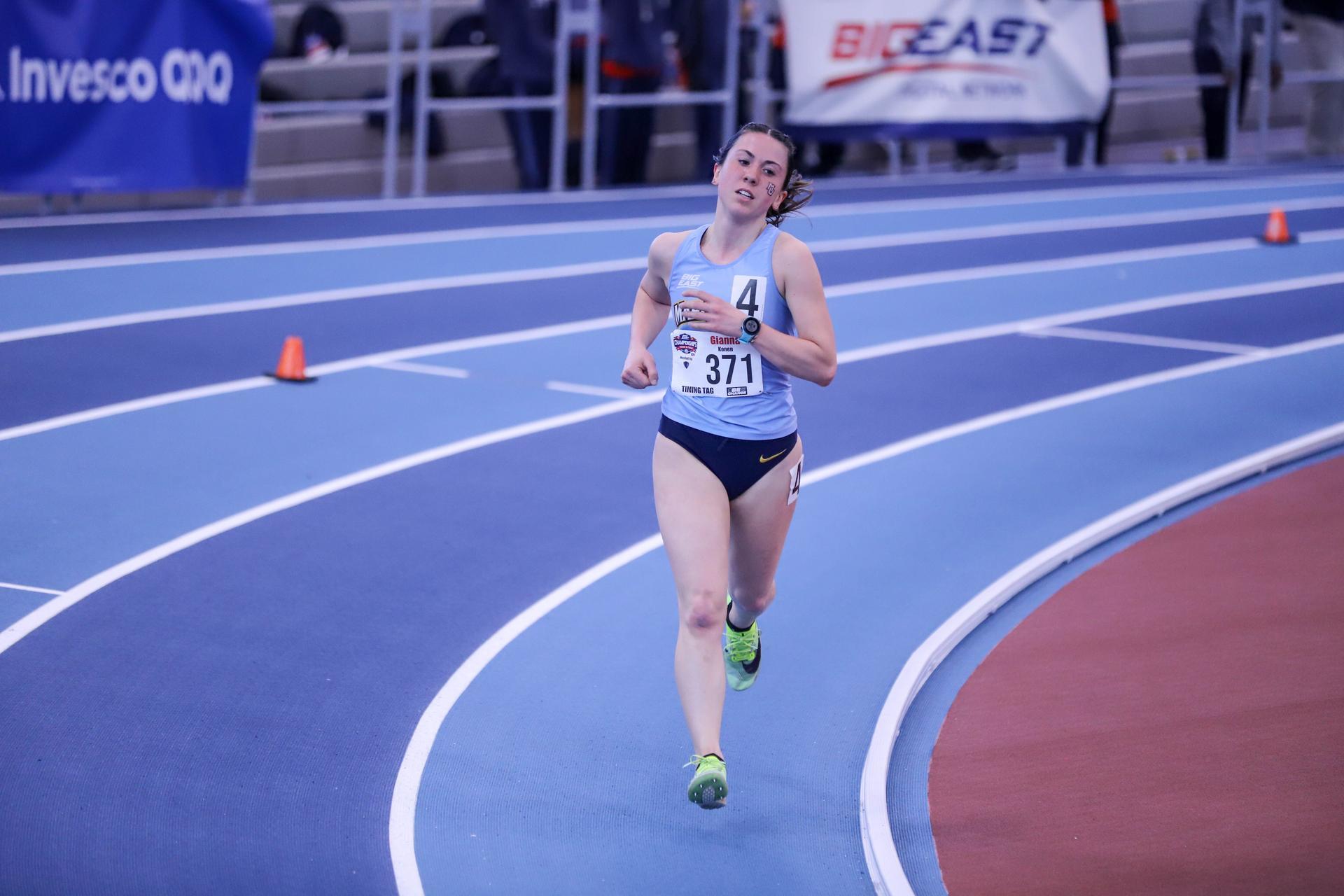There are two things Nina Winter has always known about herself: she wanted to be a nurse and playing sports was non-negotiable.
“I don’t know what it would be like to go to school without playing a sport; I think I have a much easier time finding friends when I’m in one,” Winter says.
Winter is a sophomore in the College of Nursing and an attacker on the women’s lacrosse team, a combination that is exceedingly difficult to pull off. Schedule clashes between curriculum requirements and team practices make nursing an even more difficult major for student-athletes. The self-starters who make it work do so with a lot of help from faculty and staff and a healthy amount of determination.
“It’s not easy to do this, and I think that the experience makes you a hard worker just because you have to in order to make it work,” says Gianna Konen, a senior on the track and field team.
Each undergraduate nurse must complete over 700 hours of clinical training before they can graduate. Students are assigned to clinical sites where they must spend six to eight hours per week at appointed times. For most athletes, this conflicts with their team’s practice schedule, which is similarly immutable.
“I wanted a program where coaches would be supportive of my desire to study nursing.”
Nina Winter, women’s lacrosse player and nursing student
Konen worked with clinical coordinators in the college to schedule her clinicals on days that would be minimally intrusive to practice. However, there were still some occasions when she had to run on her own after a full day of working with patients. During another semester, Konen woke up at 5 a.m. every day to fit both in.
Despite the lifestyle’s difficulties, Konen never considered dropping her commitment to running or nursing.
“Running is one of the things that helps keep me sane; my teammates’ presence is so helpful to navigating all this,” Konen says. “And the nursing program is what drew me to Marquette. I decided on that before I knew I was going to run here.”
The balancing act is hard enough that coaches at many schools discourage their athletes from going into a health-related major. Winter encountered several lacrosse programs that did not want to let nursing students on the team. However, she says Marquette was supportive from the start. Having fellow nurse Samantha Galvin, who graduated from the college with a 4.0 GPA last year, in the program was proof positive that the coaching staff gave academics their proper weight.
“I wanted a program where coaches would be supportive of my desire to study nursing, and that can be hard to find,” Winter says. “On our team, it really is student before athlete and our coaches reinforce that all the time.”
Taking on such a challenge is rarely done without a lot of reflection. For Winter, the determination comes from watching her grandmother be a home-care provider for her grandfather, who suffered from Parkinson’s disease during her childhood. Konen deepened her love for nursing while interning at Ascension Columbia St. Mary’s Hospital in Milwaukee, where she will be working in the stepdown intensive care unit after graduation.
Fortunately, most students find there are synergies between nursing and athletics. Good communication and teamwork are clear ties. And in a profession prone to high rates of burnout, athletes develop exercise routines that can maintain physical and mental health amid a stressful life.
Instead of viewing their athletic experience as separate from their careers, Konen and Winter say it is foundational for the nurses they will become.
“Being an athlete is such a good thing for your resume because it shows employers just how much determination you have,” Konen says.
“I feel like I’m very caring for my teammates and able to think ahead to see how situations are going to play out,” Winter adds. “I learned that playing lacrosse.”



